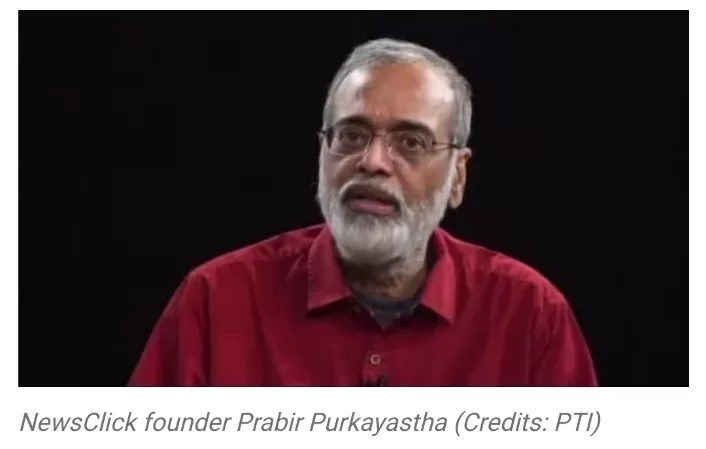In a recent hearing at the Delhi High Court, Justice Tushar Rao Gedela, presiding as a single-judge bench, raised significant concerns regarding the apprehension and detention of Prabir Purkayastha, the founder of NewsClick, and the company’s HR head, Amit Chakraborty, in connection with a case under the Unlawful Activities Prevention Act (UAPA).
The High Court expressed strong reservations about the Delhi Police’s failure to provide valid reasons for the arrest of Prabir Purkayastha and Amit Chakraborty in the remand application submitted by the authorities. Justice Gedela noted that this omission appeared to contradict a Supreme Court judgment, sparking discussions about the transparency and legality of the arrests.
The case against NewsClick, Prabir Purkayastha, and Amit Chakraborty revolves primarily around allegations of endorsing Chinese propaganda in India.
Arrest and Lack of Grounds
During the court proceedings, a pivotal issue revolved around the Delhi Police’s failure to provide grounds for the arrest of Prabir Purkayastha and Amit Chakraborty in their remand application. Justice Tushar Rao Gedela of the Delhi High Court pointed out that this omission seemed to be in contradiction to a Supreme Court ruling, leading to discussions about the transparency and legality of the arrests.
“In the remand application, the grounds of arrest are not disclosed. A Supreme Court judgment is staring you in the eye,” remarked the judge.
Raids and Accusations
The arrest of Prabir Purkayastha and Amit Chakraborty followed a series of raids conducted by law enforcement agencies across the country. These actions were initiated in response to allegations made in a New York Times article, alleging NewsClick’s involvement in promoting Chinese propaganda. The case swiftly garnered national and international attention.
Initial Detention and FIR Copy
Initially, the accused were placed in police custody for seven days. Subsequently, they approached a Delhi court to obtain a copy of the First Information Report (FIR) related to their case, a crucial step in their legal defense, as it allowed them to approach the High Court against the FIR itself.
Following the lower court’s order, Prabir Purkayastha and Amit Chakraborty decided to escalate their case to the Delhi High Court. Their petition aims to quash the FIR and address the concerns surrounding their arrest, detention, and the initiation of UAPA proceedings against them.
What Transpired in the Court Hearing?
“The absence of grounds of arrest is conspicuous in the remand application. The counsel has not been given an opportunity to present their case,” observed the judge.
Senior Advocate Kapil Sibal, representing Prabir Purkayastha, expressed strong reservations about the arrest and detention procedures. Sibal argued that the remand order was flawed and unsustainable, emphasizing the lack of disclosure of grounds for arrest and the failure to notify him of the remand hearing. He also highlighted a recent Supreme Court order in which the top court had instructed the Enforcement Directorate (ED) that grounds for arrest should be clearly stated during arrests made under the Prevention of Money Laundering Act.
“The order is indefensible. Why should I be in custody? If the (remand) order is flawed prima facie,” Sibal contended.
Solicitor General Tushar Mehta, appearing for the Delhi Police, requested the Court to schedule the case for hearing on Monday, suggesting that undue attention is being focused on the case.
“There are aspects beyond what meets the eye. I urge you to schedule the hearing for Monday. They have approached this court after a lapse of three to four days. If I cannot secure a weekday, I leave it to the wisdom of my Lords,” Mehta added.
The Delhi High Court has scheduled further hearings for October 9 and directed the Delhi Police to respond to the petition and produce the case diary. The court has also emphasized the importance of ensuring the physical well-being of Amit Chakraborty, considering his disability, while he remains in custody.






